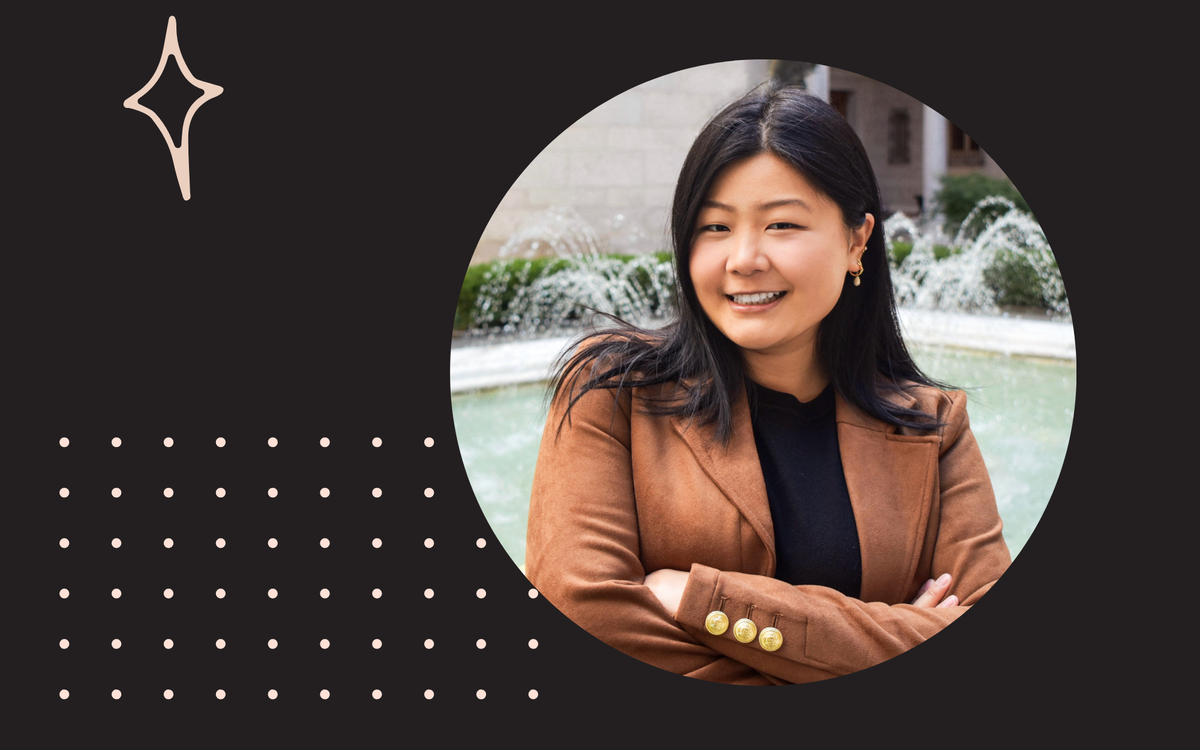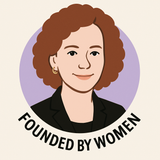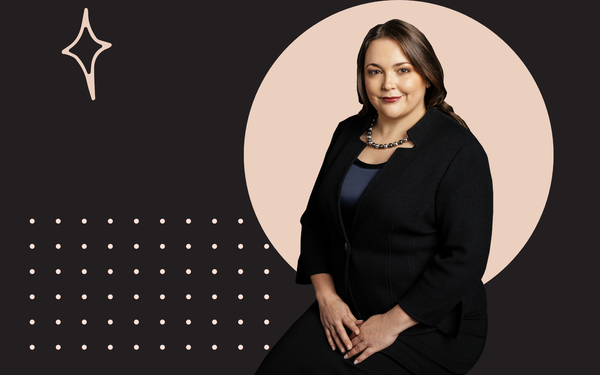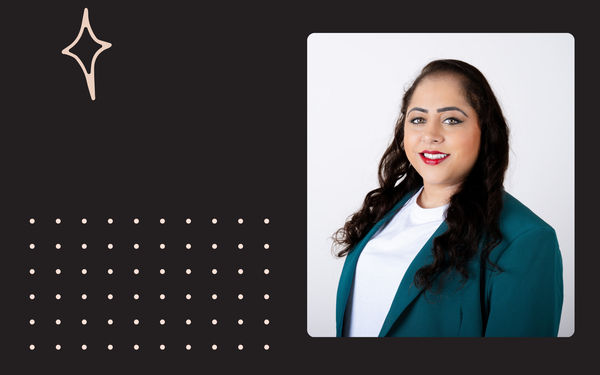How a Silicon Valley–Trained Marketer Turned Publicist Is Reimagining the Creator Economy for Writers and Scholars

Most 15-year-olds are worried about passing algebra, but Ellen Yang was launching her first digital marketing agency. By 17, she was named one of Boston's Top 25 Under 25. After studying English and Linguistics at Stanford and cutting her teeth in Silicon Valley's creator economy, she could have easily continued building tech empires or scaling venture-backed startups.
Instead, she founded Punctuation PR, a literary publicity agency that reads manuscripts, copyedits prose, and works deeply with each writer's ideas. In an industry racing toward AI-generated content and automated social media posts, Ellen chose the opposite path: treating authors like the original content creators they've always been.
Her approach might seem counterintuitive in today's marketing landscape, but it's rooted in a sophisticated understanding of how language creates systems of meaning and power. At Stanford, Ellen studied how words persuade, organize, and build worlds. In Silicon Valley, she watched platforms like TikTok turn individuals into media ecosystems. Now, she's applying those same frameworks to help writers and thinkers navigate what she calls today's "fractured intellectual economy."
Punctuation PR operates on a simple belief: great ideas deserve great audiences. But Ellen's method for connecting them is anything but simple. She serves on the Young Patrons Advisory Council for PEN America, writes about language and culture in her newsletter "New Material Girl," and has built a business model that's profitable from day one while staying intensely hands-on with every client.
Her clients’ work spans from literary fiction to investigative journalism, from academic research to Substack newsletters. What unites all her clients is Ellen's conviction that visibility should feel like an extension of their values, not an erosion of them. She helps writers build what she calls "a public self sturdy enough to hold the private one."
In this conversation, Ellen shares how she pivoted from tech marketing to literary publicity, why she rejected the content mill model that dominates modern marketing, and her philosophy for helping creative professionals build visibility without becoming performative content machines.
Question 1: From Teen Entrepreneur to Literary Publicist
You launched your first digital marketing agency at 15 and were named one of Boston's Top 25 Under 25 by 17. After studying English and Linguistics at Stanford and working with tech startups in Silicon Valley, you founded Punctuation PR for writers and thinkers. That's quite a pivot from tech marketing. What made you shift focus to literary publicity, and how does your background in linguistics and the early creator economy influence how you build authors' platforms today?
It might look like a pivot, but for me it’s really the same project: language. My entire career has been about understanding how words create systems of meaning and power, whether in literature, linguistics, or technology. At Stanford, I studied English and Linguistics because I wanted to investigate language as both an art and a science: how it persuades, organizes, and builds worlds. Marketing—and later, artificial intelligence, my primary industry before books—became applied forms of that same inquiry.
Working in Silicon Valley, I saw firsthand how platforms like TikTok and Instagram turned individuals into their own media ecosystems. I helped companies and creators alike learn how to cultivate voice, community, and ownership, or, essentially, how to translate identity into influence. Over time, I realized that the same frameworks could transform how writers and thinkers navigate today’s fractured intellectual economy. Authors, journalists, and professors have always been the original content creators, yet they’re often left without the infrastructure or literacy to participate fully in the digital sphere.
Punctuation PR is my answer to that gap, to the question of what’s missing. My company is an experiment in what happens when you apply the logic of the creator economy to the life of the mind. My background in discourse analysis and dialogue shapes everything I do: I’m interested in how language circulates, how ideas scale, and how meaning is built collaboratively between writers and their publics. In many ways, this company is my actual senior thesis from Stanford (which used the methods and theories of discourse analysis from sociolinguistics and applied it to the contemporary novel and its relationship to social media) turned outward: an attempt to make the mechanics of attention serve the progress of thought.
Question 2: Rejecting the Content Mill Model
Most publicists today are cranking out AI content at scale or automating social media posts. But you're reading manuscripts, copyediting prose, and working deeply with each writer's ideas. That's the opposite of what's happening in marketing right now. How do you run a profitable business while staying this hands-on? And why does that matter for the writers you work with?
The great thing about running an agency is that you can be profitable from day one. Coming from Stanford and Silicon Valley, where the default mindset is venture-backed growth and years of runway before revenue, it’s refreshing and liberating to build something self-sustaining. Every client engagement at Punctuation PR is both impact and income in real time. The business scales through reputation, not paid acquisition, and that makes it both lean and resilient.
But profitability isn’t the only metric. The deeper innovation is the model itself. Most modern marketing agencies and in-house teams now scale by automating output. I scale by compounding expertise and committing myself to trying something new everyday. Each project makes the next one smarter. Every time I read a manuscript, edit a Substack post, or co-develop a campaign, I’m building a library of intellectual, creative, and strategic frameworks that become adaptable across clients. If you can create a preorder campaign that results in a #1 Hot New Release on Amazon once, you can certainly do it twice. If you can book one show from a major podcast network, you can book another from that same network. That’s my version of R&D.
Writers and academics don’t need content mills; they need creative infrastructure. My job is to give them that: systems for visibility, longevity, and voice. That’s why I stay hands-on: it’s how I build competitive differentiation in a space obsessed with speed.
AI can generate content at scale, but it can’t build trust or context. Those are human technologies, and they’re the foundation of any sustainable creative economy.
Question 3: Building a Public Self Without Losing Yourself
Through your newsletters, you write about how language shapes identity online—everything from TikTok punctuation trends to how writers navigate building public platforms. For female entrepreneurs and creative professionals trying to build visibility without becoming performative content machines, what's your actual advice? How do you help clients show up publicly while protecting what matters most about their work?
I think the key is to separate visibility from performance. A public presence isn’t about manufacturing an identity; it’s about sustaining one. That distinction is especially important for women, who are often told to be both authentic and palatable at once. It’s a paradox that can easily turn self-expression into self-surveillance.
When I work with writers or founders, my advice is simple: create structures that let you show up consistently without eroding your inner life. Protect time for the work itself, and schedule time for the visibility work. Most people struggle not with strategy, but with implementation. Someone still has to send the pitch, write the caption, or follow up on the email. Someone has to source the contacts, manage the calendar, and organize everything into a spreadsheet. Publicists exist to shoulder that cognitive load so creative people can stay focused on the thinking that only they can do.
If you don’t have a publicist, become your own. Treat visibility like any other creative discipline, one that rewards rhythm more than perfection. You don’t need to post every day, but you do need to stay in the conversation. Showing up consistently is how you build trust, and trust is the true metric of influence.
I tell my clients that visibility should feel like an extension of their values, not an erosion of them. The goal isn’t to perform authenticity—it’s to build a public self sturdy enough to hold the private one. That philosophy is also the foundation of Punctuation PR. I built the company to give writers and thinkers the infrastructure to show up publicly without fracturing privately, to create systems that protect their focus and multiply their impact. Every client relationship is about creating a sustainable, economically and creatively viable model for authorship.
Are you a woman leader with an inspiring journey to tell? Founded by Women is on a mission to elevate and amplify the voices of women making an impact.
If you're breaking barriers, driving change, or paving the way for others, we’d love to feature your story. Get in touch with us today!
👉 hi@foundedbywomen.org


